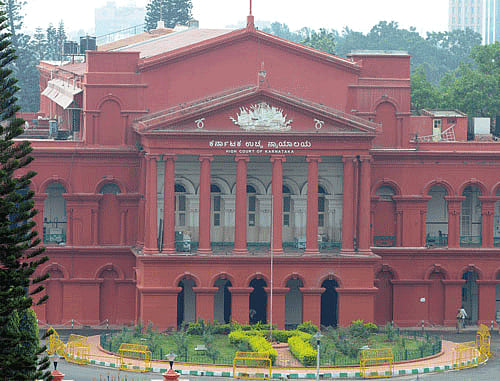
An ex-serviceman, who was working as an armed guard with a bank, has been acquitted of murder charges by the High Court on the ground that he was suffering from paranoid schizophrenia.
Sudhakara (51) was employed as an armed guard with Kodialbail branch of the Karnataka Bank in Mangaluru since 1997 after his retirement from the Army. A person by name U Ramakrishna was working as a special assistant at the same branch. Sudhakara was transferred since he was not discharging his duties properly and he was under the impression that Ramakrishna was responsible for his transfer.
On April 2, 2001, Sudhakara shot dead Ramakrishna at the bank with the double-barrel gun provided to him for discharging his duty. Sudhakara fled the spot. Later, he surrendered himself to the police.
A trial court in Mangaluru convicted Sudhakara for the offence punishable under Section 302 (murder) of the Indian Penal Code (IPC) and sentenced him to life imprisonment.
On the day of the murder, Sudhakar’s wife had submitted a representation to the Superintendent of Police, Mangaluru, stating that her husband was suffering from paranoid schizophrenia two months prior to the murder of Ramakrishna.
Paranoid schizophrenia is a chronic mental disorder in which a person loses touch with reality and believes that everyone is out to harm him.
She said that he had fear syndrome and presumed that employees in the Bank were working against him and were mentally torturing him.
Following an appeal by his wife, the Session’s court in Mangaluru had granted bail to Sudharaka having found that he required continuous treatment at Nimhans. Several doctors including Dr Shivaram Karikal, Dr K S Shetty, Dr C R Chandrashekhar, Dr K S Madhava Rao - psychiatrists, Dr N Shankar - neurologist, Dr M Nagendra Murthy declared Sudharaka to have been suffering from paranoid schizophrenia.
‘Unsound mind’
A division bench of the High Court comprising Justice Mohan M Shantanagoudar and Justice R B Budihal opined that the he had committed the offence with an ‘unsound mind’.
It is proved that his ‘cognitive faculties’ were very much impaired at the time when the crime was committed and consequently, he did not know the nature of the act.
The bench granting the benefit of IPC Section 84 allowed the criminal appeal and ordered to release Sudhakara from custody for further medical treatment.
